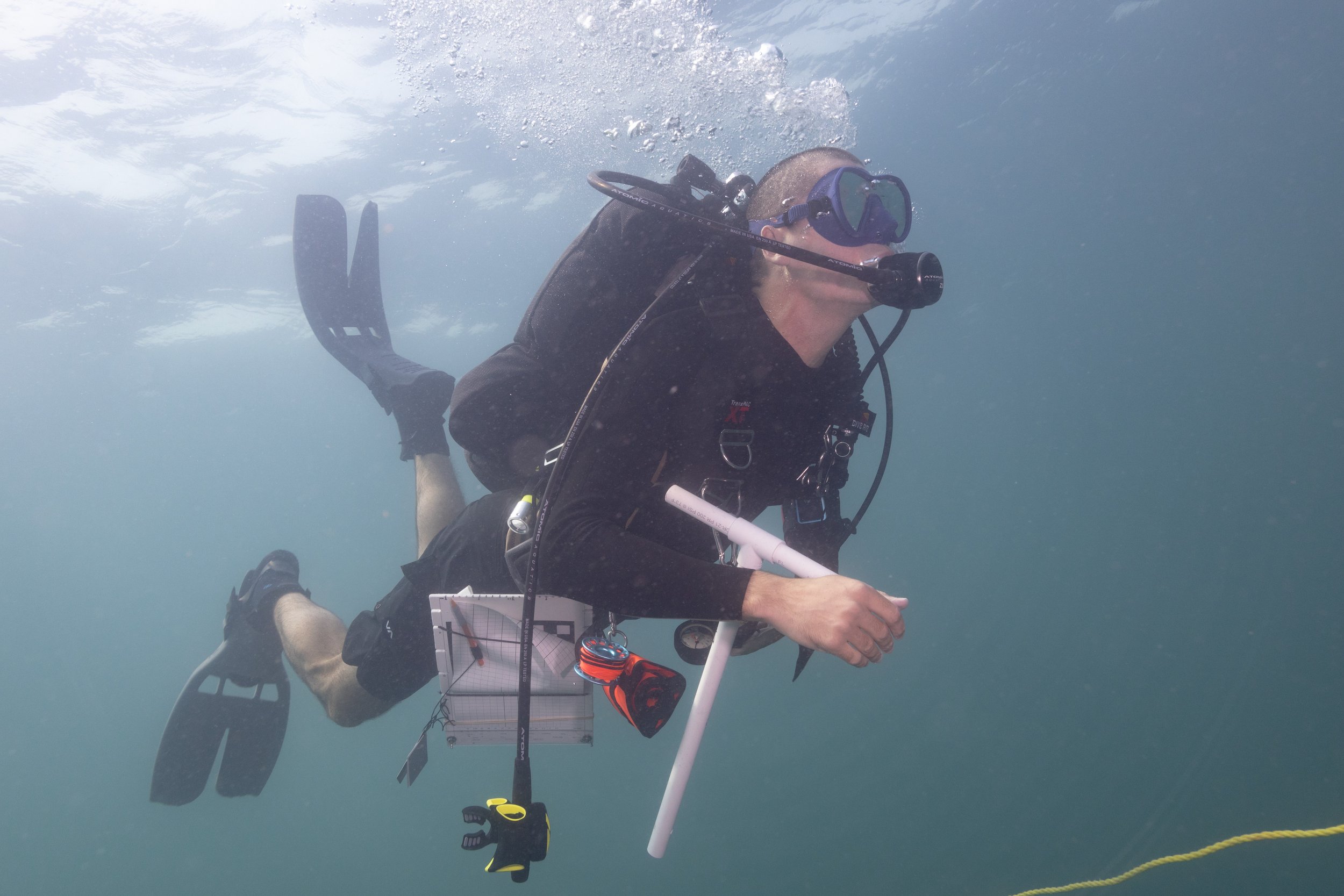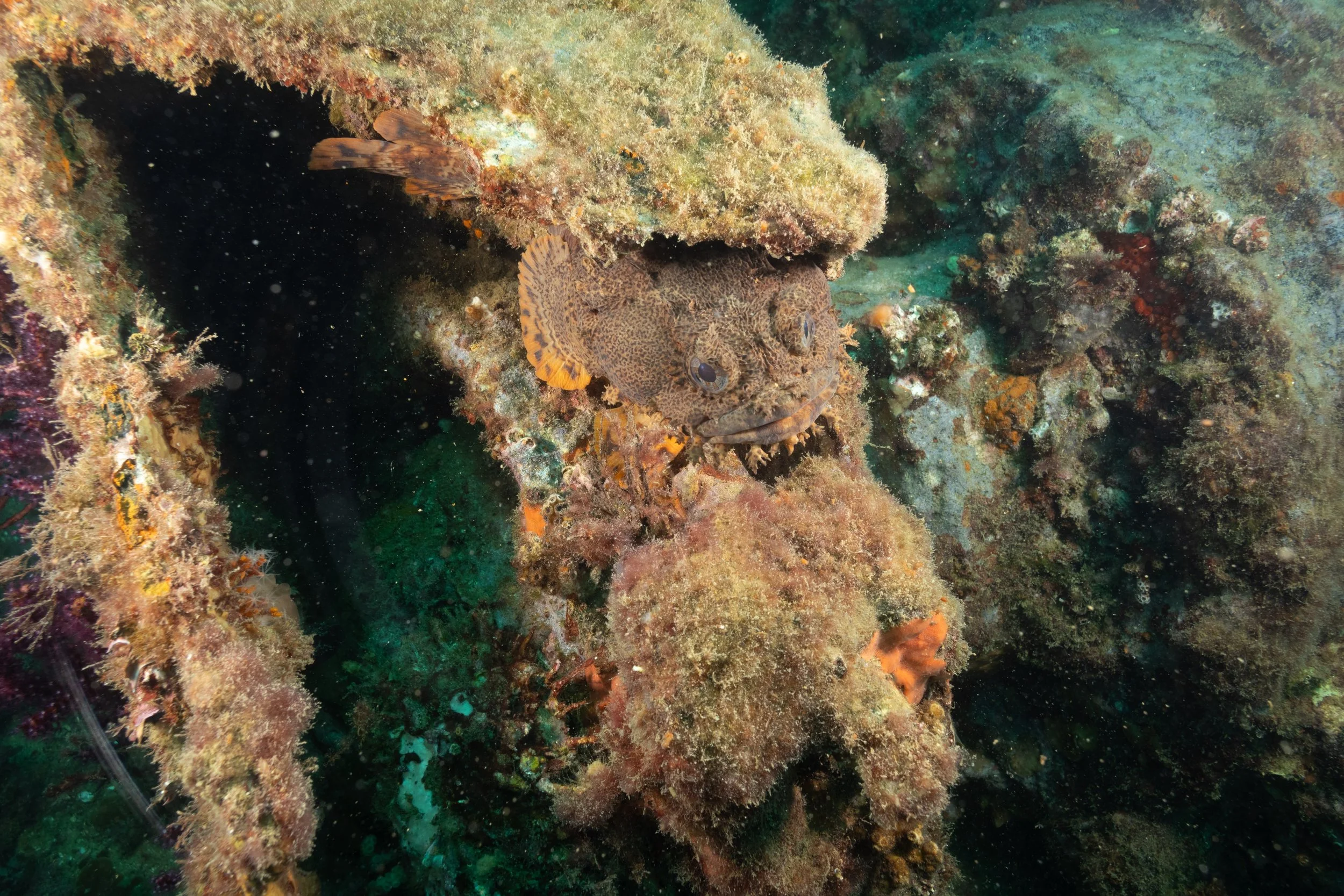
RESEARCH

OUR FOCUS
Our lab focuses on community ecology, functional ecology, and macroecology of marine fishes. We aim to understand i) how fish communities respond to environmental changes over space and time, ii) how fish communities shape ecosystem resilience, functioning, and services, and iii) how to integrate species’ functional roles into conservation and management

OUR APPROACHES
Research in our lab uses a combination of field-based observations, laboratory processing, and data analysis. Current research projects involve underwater visual census of fish and benthic communities via scientific scuba diving, bottom-trawl surveys at both local and regional scales, and elemental analysis of fish body tissues. Our work also relies heavily on statistical analysis and modelling.
Below read about our ongoing research projects.
COMMUNITY DYNAMICS IN EUROPEAN SEAS
Over the last five years, our group has focused extensively on the long-term responses of fish communities to environmental changes in European seas. Now, as part of an international working group, we are examining the past and future dynamics of fish trait diversity in ecosystems ranging from the Mediterranean to the Barents Sea. We are also examining the dynamics of fish-mediated ecosystem functions and evaluating alterative fisheries management scenarios to safeguard ecosystem health. Ultimately, we seek to understand i) how fish communities could change in the next 50 to 100 years, ii) what impact this will have on ecosystem functioning and services, and iii) how we we can prepare management to achieve Sustainable Development Goals into the future.
FUNCTIONAL RARITY & CONSERVATION
Functionally rare species have unique traits making them distinct from other species in their ecosystem. These species may support key, yet uninsured ecological roles and could be major conservation concerns. Functional rarity is an emerging topic in ecology and evolution, but we are only beginning to understand it’s causes and consequences. Our group is examining functional rarity across ecosystems, aiming to uncover i) how do functionally rare species contribute to ecosystem resilience, functioning, and services, ii) what conditions favor functionally rare species, and iii) how can we conserve functionally rare species in the face of global change?
CORAL REEF FISHERIES
Coral reef fisheries support the livelihoods and nutritional needs of millions of people throughout the tropics. However, increasing global trade, growing human populations, and lack of diverse employment opportunities have driven overfishing on coral reefs worldwide. Coral reefs are also severely threatened by global warming, coastal development, and pollution. Managing coral reef fisheries is exceptionally difficult given the vast number of species they host, which has ushered a focus on ecosystem-based management. Our lab aims to support ecosystem-based management by answering fundamental questions such as i) what fish community structures will be most resilient to climate change, ii) which species should we conserve to maintain ecosystem functioning, and iii) how can we design management strategies today to improve future outcomes?
Temperate Reef Ecology
Temperate reef ecosystems contribute substantially to biodiversity and support economically-important fish species like snapper and grouper. In many areas, artificial reefs like shipwrecks are also deployed to expand reef habitat and enhance fisheries production. These natural and artificial reefs are crucial for biodiversity and fisheries, yet they are threatened by environmental changes and human impacts. In the tropical-temperate transition zone along the U.S. Southeast Coast, these ecosystems are already experiencing topicalization and species invasions. Our group is examining the spatial and temporal dynamics of temperate reef ecosystems, seeking to understanding i) how are natural and artificial reefs responding to environmental changes, ii) how are community and food web structure influenced by environmental conditions and reef characteristics, and iii) how can we maximize the benefits of artificial reefs in the face of climate change?
“Twenty years from now you will be more disappointed by the things that you didn't do than by the ones you did do, so throw off the bowlines, sail away from safe harbor, catch the trade winds in your sails. Explore, Dream, Discover.” -Mark Twain



